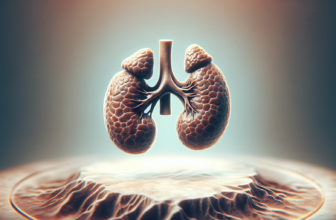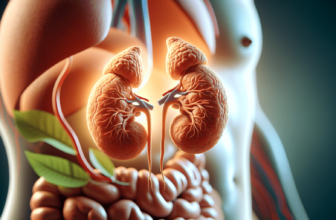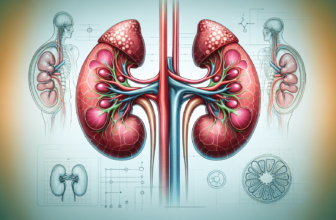Have you ever thought about what goes on in your body when you feel stressed or anxious? One critical aspect of that response involves the adrenal glands, which can sometimes develop tumors. But what exactly are adrenal tumors, and are they usually cancerous?
Understanding the Adrenal Glands
The adrenal glands are tiny, triangular-shaped glands located on top of each kidney. They play a significant role in hormone production, which helps regulate various bodily functions such as metabolism, blood pressure, immune response, and stress management. These glands release hormones like cortisol, adrenaline, and aldosterone, each crucial for maintaining your overall health.
The Function of Adrenal Hormones
- Cortisol: Often referred to as the stress hormone, cortisol helps your body respond to stress and influences metabolism and immune function.
- Adrenaline: This hormone, sometimes called epinephrine, is responsible for your “fight or flight” response in stressful situations. It increases heart rate and energy levels.
- Aldosterone: This hormone helps regulate blood pressure and maintains the balance of salt and water in your body.
It’s fascinating how such small glands can have such a powerful impact on your health and well-being.
What Are Adrenal Tumors?
Adrenal tumors are abnormal growths that can occur in one or both of the adrenal glands. They can vary in size and composition, and not all adrenal tumors are cancerous. In fact, many are benign (non-cancerous) and do not produce symptoms.
Types of Adrenal Tumors
Adrenal tumors can be broadly categorized into functional and non-functional tumors:
-
Functional Tumors: These tumors produce hormones excessively, leading to various symptoms. For instance, an adrenal tumor that secretes excess cortisol may cause Cushing’s syndrome, while one that produces excessive aldosterone may lead to Conn’s syndrome.
-
Non-Functional Tumors: These tumors do not produce hormones and are often discovered incidentally during imaging studies for unrelated reasons.
Common Types of Adrenal Tumors
Below are some of the common types of adrenal tumors:
| Type | Description |
|---|---|
| Adrenal Adenomas | Benign tumors that arise from glandular tissue. |
| Adrenal Carcinomas | Rare, malignant tumors that can be aggressive. |
| Pheochromocytomas | Tumors that produce excess adrenaline. |
| Neuroblastomas | Mostly affect children and can develop from nerve tissue near the adrenal glands. |
Understanding these types of tumors can help you recognize the diversity of adrenal tumors and their potential impact on health.
Are Adrenal Tumors Usually Cancerous?
A common question you might have is whether adrenal tumors are typically cancerous. The answer is nuanced, as it depends on the type of tumor in question.
Benign vs. Malignant Tumors
Most adrenal tumors are benign, meaning they are not cancerous. Studies show that approximately 80-90% of adrenal tumors found in adults are adenomas, which usually do not cause harm. However, adrenal cancers, known as adrenal carcinomas, are rare but can be aggressive.
Risk Factors for Malignancy
While the majority of adrenal tumors are benign, a few factors can increase the likelihood of a tumor being cancerous:
- Size of the Tumor: Tumors larger than 4-6 cm are more likely to be malignant.
- Imaging Characteristics: Certain features on imaging studies, such as irregular borders or calcifications, might suggest a higher chance of malignancy.
- Symptoms: The presence of symptoms related to hormone overproduction can also be a red flag.
It’s essential to approach adrenal tumors with careful evaluation, as benign conditions can often mimic malignancies.
Diagnosing Adrenal Tumors
If you suspect an adrenal tumor due to symptoms or imaging results, your healthcare provider will typically initiate a series of diagnostic steps.
Imaging Tests
- CT Scans or MRI: These are the most common imaging techniques used to visualize the adrenal glands, helping identify the presence and size of tumors.
- Ultrasound: While less common for adrenal assessment, it can be used in some cases.
Hormonal Testing
In cases of functional tumors, blood and urine tests may be conducted to measure hormone levels. Abnormal levels can indicate the presence of a hormone-producing tumor.
Biopsy
A biopsy may be performed in certain circumstances to obtain tissue samples for diagnosis. However, this is less commonly done for adrenal tumors due to the risk of complications and the fact that imaging often provides sufficient information.
Treatment Options for Adrenal Tumors
If diagnosed with an adrenal tumor, the next steps will depend on various factors, including the tumor’s type and whether it is functional or non-functional.
Surgical Intervention
Surgery is often the primary treatment for adrenal tumors, especially if they are large or suspected to be malignant. The type of surgical procedure may vary:
- Adrenalectomy: This is the surgical removal of one or both adrenal glands. In cases of benign tumors, an adrenalectomy is often curative.
Monitoring and Observation
For small, non-functional tumors, your healthcare provider may recommend a “watch and wait” approach. Regular imaging and hormone level monitoring can help ensure that the tumor does not grow or cause symptoms.
Medications
In some cases, particularly for functional tumors producing excess hormones, medications may be prescribed to manage symptoms or control hormone levels.
Follow-Up Care
After treatment for an adrenal tumor, follow-up care is crucial. Regular check-ups can help monitor hormone levels and any potential tumor recurrence.
Living with an Adrenal Tumor
Receiving a diagnosis of an adrenal tumor can be challenging, but understanding your condition and the available options is empowering.
Managing Symptoms
If you experience symptoms related to hormonal imbalances, your healthcare provider can help you manage them through lifestyle modifications and treatments.
Support Systems
Consider reaching out to support groups or counseling services to discuss your concerns and connect with others who may be experiencing similar challenges. Having a robust support network can make a significant difference in your journey.
Lifestyle Considerations
Adopting a healthy lifestyle can influence your overall well-being. This includes maintaining a balanced diet, staying active, and managing stress, all of which can enhance your health and help you cope with any conditions related to adrenal tumors.
Conclusion
Adrenal tumors are an intricate subject, intertwining a variety of factors such as hormone production, potential malignancy, and treatment options. While many adrenal tumors are benign, consulting with your healthcare provider is paramount for accurate diagnosis and management. Your health is worth understanding deeply as you navigate any challenges that may arise.
If you ever find yourself in a situation where you have questions or concerns about adrenal tumors, remember that you’re not alone in this journey. Knowledge is power, and with thoughtful guidance from healthcare professionals, you can make informed decisions for your well-being. You’ve got this!






